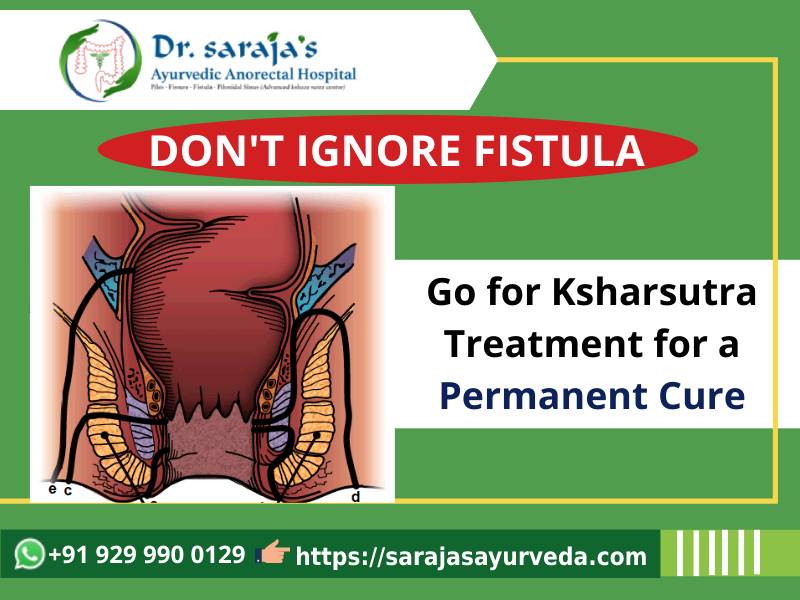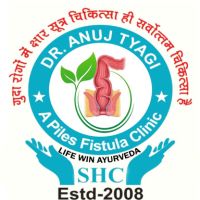
How to Cure Fistula Permanently
How to Cure Fistula Permanently? - Fistula is a condition that affects many individuals worldwide, causing discomfort and pain. Understanding the causes, symptoms, and treatment options is essential for effectively managing this condition. This article aims to provide comprehensive insights into fistula treatment, focusing on the available options in Ghaziabad, including fistula clinics and preventive measures.
Introduction to Fistula
Fistula is an abnormal connection or passageway that develops between two organs or between an organ and the skin's surface. In the case of an anal fistula, it typically forms between the anal canal and the skin near the anus. This condition often arises due to untreated or poorly managed anal abscesses.
Understanding Fistula: Causes and Symptoms
What is Fistula?
Fistulas can develop for various reasons, including infections, inflammatory bowel disease (such as Crohn's disease), trauma, or surgery. In the case of anal fistulas, they commonly result from an anal abscess that hasn't healed properly, leading to the formation of a tunnel-like tract.
Causes of Fistula
The primary causes of fistula formation include infections, inflammatory conditions, trauma, and surgical complications. Infections can lead to the development of abscesses, which may subsequently progress into fistulas if not adequately treated.
Symptoms of Fistula
Common symptoms of fistula include persistent anal pain, swelling, discharge of pus or blood, itching, and discomfort during bowel movements. These symptoms can vary depending on the location and severity of the fistula.
Diagnosis of Fistula
Physical Examination
Diagnosing a fistula typically involves a thorough physical examination, during which a healthcare provider may inspect the affected area and inquire about the patient's symptoms and medical history.
Diagnostic Tests
In addition to a physical examination, diagnostic tests such as imaging studies (e.g., MRI, ultrasound) or endoscopic procedures may be conducted to evaluate the extent and characteristics of the fistula.
Traditional Treatments for Fistula
Medications
While medications can help manage symptoms such as pain and inflammation, they usually cannot cure fistulas. Antibiotics may be prescribed to treat underlying infections, while pain relievers can alleviate discomfort.
Home Remedies
Some home remedies, such as warm sitz baths and applying over-the-counter ointments, may provide temporary relief from fistula-related symptoms. However, they are not effective in curing the condition.
Surgical Options for Fistula
Fistulotomy
Fistulotomy is a surgical procedure performed to remove the fistula tract entirely. It involves cutting open the fistula and allowing it to heal from the inside out. This procedure is often effective for simple or superficial fistulas.
Seton Placement
In cases where a fistula is complex or involves multiple tracts, a seton may be placed to facilitate drainage and gradual healing. A seton is a piece of material (e.g., thread or rubber band) that is inserted through the fistula tract to keep it open and allow for drainage.
Advancements in Surgical Techniques
In recent years, advancements in surgical techniques, such as minimally invasive procedures and laser therapy, have expanded treatment options for fistula patients. These innovative approaches aim to minimize discomfort, reduce recovery time, and improve outcomes.
Fistula Treatment in Ghaziabad
Overview of Fistula Clinics
Ghaziabad offers several specialized clinics and healthcare facilities dedicated to the diagnosis and treatment of fistula. These clinics employ experienced healthcare professionals and utilize advanced technologies to deliver comprehensive care to patients.
Available Treatment Options
Fistula treatment options in Ghaziabad may include surgical interventions such as fistulotomy, seton placement, or newer techniques like laser therapy. Patients can consult with qualified healthcare providers to determine the most suitable treatment approach based on their individual needs and preferences.
Choosing the Right Clinic
Factors to Consider
When selecting a fistula clinic in Ghaziabad, patients should consider factors such as the clinic's reputation, healthcare provider expertise, available treatment options, and patient satisfaction rates. It is essential to choose a clinic that prioritizes patient comfort, safety, and successful outcomes.
Patient Testimonials
Reading testimonials or reviews from previous patients can provide valuable insights into the quality of care and overall experience at a particular clinic. Positive testimonials and success stories can instill confidence in prospective patients and help them make informed decisions.
Preventive Measures for Fistula
Dietary Modifications
Making dietary modifications, such as increasing fiber intake and staying hydrated, can help prevent constipation and reduce the risk of developing anal fistulas. A diet rich in fruits, vegetables, whole grains, and lean proteins promotes regular bowel movements and maintains colon health.
Hygiene Practices
Practicing good hygiene, including proper anal cleansing after bowel movements and keeping the anal area clean and dry, can help prevent infections and minimize the risk of developing anal fistulas. Using gentle, fragrance-free cleansing products is recommended to avoid irritation.
Living with Fistula: Management Tips
Lifestyle Changes
Managing fistula involves adopting lifestyle changes to promote healing and reduce the risk of recurrence. These may include maintaining a healthy diet, staying physically active, avoiding prolonged sitting, and managing underlying conditions such as inflammatory bowel disease.
Follow-up Care
After undergoing fistula treatment, regular follow-up appointments with healthcare providers are essential to monitor healing progress, address any concerns or complications, and adjust treatment plans if necessary. Patients should adhere to post-operative instructions and attend scheduled follow-up visits for optimal outcomes.
Conclusion
Effective management of fistula requires a comprehensive approach that addresses the underlying causes, symptoms, and treatment options. With advancements in medical technology and specialized clinics offering advanced care, individuals in Ghaziabad have access to quality treatment for fistula. By understanding preventive measures, choosing the right piles clinic in Ghaziabad, and following recommended lifestyle changes, individuals can improve their quality of life and achieve long-term relief from fistula-related symptoms.
Unique FAQs
Is fistula treatment painful?
While some discomfort may be experienced during and after certain treatments, healthcare providers typically take measures to minimize pain and ensure patient comfort.
How long does it take to recover from fistula surgery?
Recovery time can vary depending on the type of surgery performed, the complexity of the fistula, and individual factors. Most patients can expect to resume normal activities within a few weeks to a few months after surgery.
Can fistulas heal on their own without treatment?
In some cases, small or superficial fistulas may heal on their own with proper hygiene and symptom management. However, most fistulas require medical intervention to prevent complications and promote healing.
Are there any dietary restrictions after fistula surgery?
Healthcare providers may recommend dietary modifications, such as increasing fiber intake and avoiding spicy or irritating foods, to support healing and prevent recurrence.
Is fistula surgery covered by insurance?
Coverage for fistula surgery may vary depending on individual insurance plans and policies. Patients are advised to check with their insurance providers to determine coverage eligibility and any associated costs.
